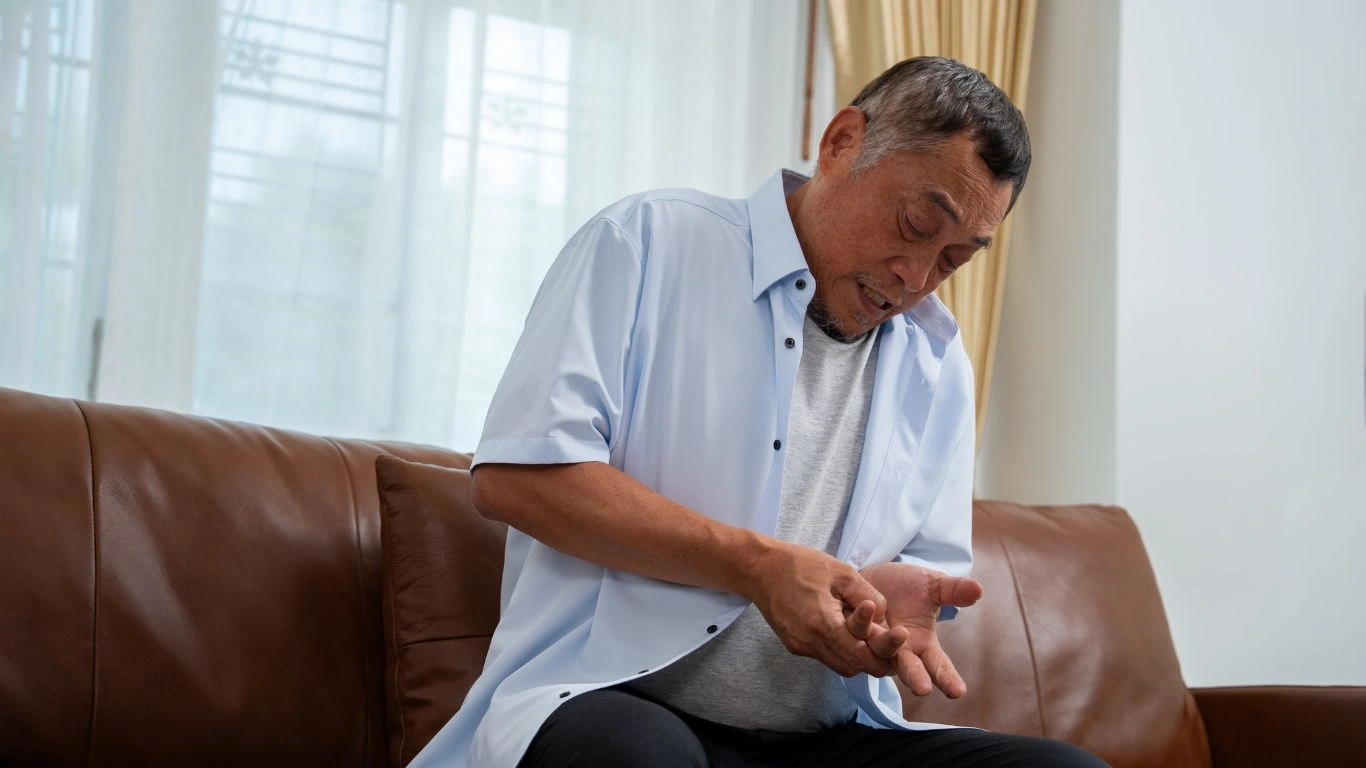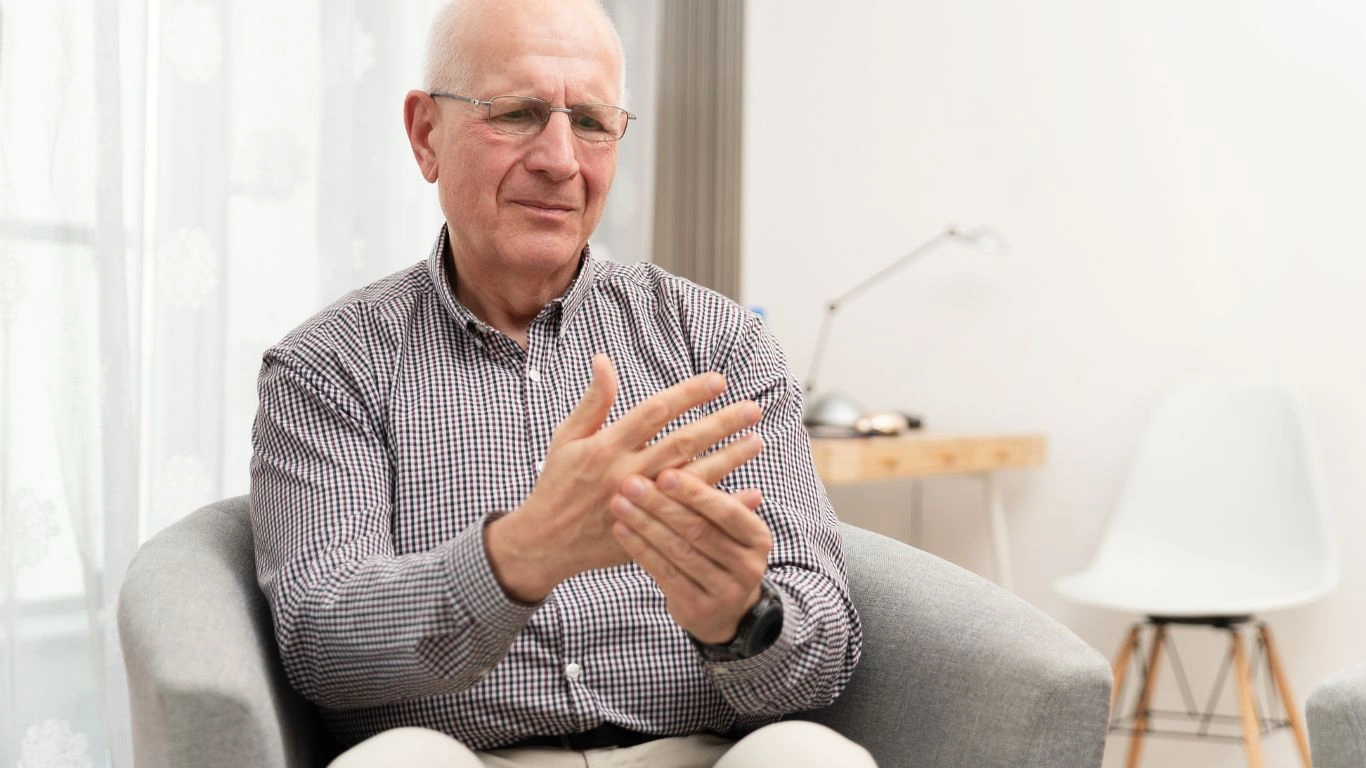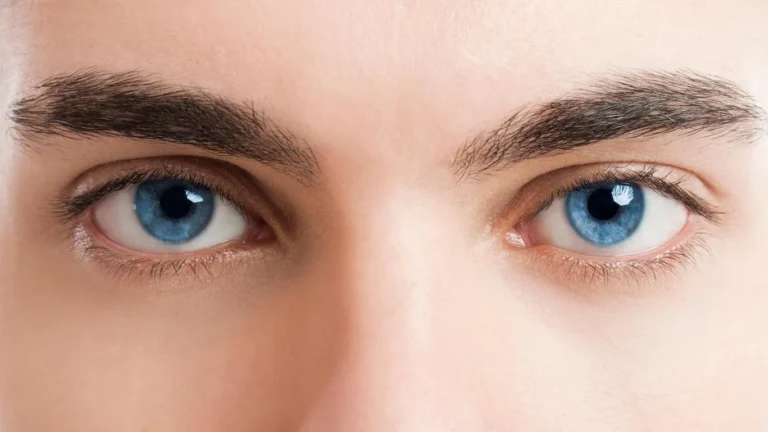Overcoming Rheumatoid Arthritis Fatigue: Boost Your Energy Now
If you’re dealing with rheumatoid arthritis and its effect on energy levels, you’re not imagining it—this fatigue is *real*, relentless, and often misunderstood. As a rheumatology nurse practitioner, I’ve had countless patients tell me they’re tired of being tired. And honestly? I get it. The kind of fatigue that comes with RA isn’t the same as pulling an all-nighter or a bad night’s sleep. It’s a deep, soul-draining tiredness that lingers even after a full night of rest. It messes with your motivation, your mood, and sometimes even your relationships. So, let’s dig into what’s really going on here.
How Rheumatoid Arthritis Drains Your Energy

The Science Behind the Fatigue
RA is an autoimmune disease, which means your body’s immune system mistakenly attacks its own tissues—especially the joints. But what many people don’t realize is that this immune system overdrive affects more than just your joints. It creates a constant state of systemic inflammation. And inflammation? Well, it’s exhausting. Literally.
When your immune system is in go-mode all the time, it releases proteins called cytokines. These cytokines can trigger fatigue, disrupt your sleep patterns, and even affect brain function. That’s one of the reasons why, even on a “good” day with minimal joint pain, you might still feel like a zombie by lunchtime.
My Patients Say It Best
I remember one of my patients, a schoolteacher in her 40s, telling me, “It’s not just being tired. It’s like my body is walking through cement all day.” That stuck with me. And I’ve heard versions of that from so many others—nurses, construction workers, stay-at-home parents, retirees. This fatigue doesn’t care about your job, your motivation, or your to-do list. It just bulldozes through.
Other Culprits Behind the Energy Crash

Medications
Now, don’t get me wrong—medications like methotrexate or biologics are game-changers when it comes to slowing disease progression. But some of them can also make you feel wiped out. It’s a tricky balance. If I had a dollar for every time a patient told me they felt worse on their meds than off, I’d have a pretty solid coffee fund.
Sometimes, we have to adjust the timing of doses or add supportive care like folic acid or even B12 injections. It’s all about tailoring the plan to your unique needs. If your meds are leaving you more drained than your RA itself, don’t suffer in silence—talk to your provider.
Sleep Disruptions
When you’re dealing with joint pain and stiffness—especially at night—it’s no surprise your sleep takes a hit. And without quality sleep, your body doesn’t get the chance to repair itself. It’s a vicious cycle: pain disrupts sleep, poor sleep worsens fatigue, and fatigue lowers your pain tolerance. Ugh. Been there, seen that too many times to count.
Ways RA Fatigue Shows Up in Daily Life

Not Just Physical Tiredness
This isn’t the kind of tired where a cup of coffee will fix everything. RA fatigue shows up in ways that catch people off guard. It can make your brain foggy, your patience thinner, and even your emotions feel muted. And let’s be real—trying to explain that to someone who’s never felt it is almost impossible. “You just need to rest more,” they say. Cue the eye roll.
- Harder to concentrate at work or during conversations
- Need for frequent rest breaks throughout the day
- Feeling emotionally flat or more irritable
- Lower motivation for social activities or even basic chores
My Advice from the Trenches
Sometimes it helps just to acknowledge what you’re feeling without guilt. One thing I always tell my patients is: fatigue is not a weakness. It’s a symptom. And it deserves to be addressed with just as much attention as joint pain or swelling.
So if you’re nodding your head right now, feeling seen—good. You’re not alone, and you’re definitely not lazy. You’re navigating a chronic illness that’s working overtime in your body every single day. And it’s okay to give yourself some grace.
How to Fight Back Against RA Fatigue

Start by Listening to Your Body
One of the most important lessons I’ve learned—not just from textbooks, but from sitting across from real people battling this daily—is that pushing through the fatigue usually backfires. I had to tell one of my regular patients, a super driven small business owner, “Just because your mind is ready to go doesn’t mean your body is.” We worked together to reframe rest not as a luxury, but as a critical part of her care plan.
Pay attention to your body’s rhythms. Are there certain times of day when your energy crashes hardest? Build your schedule around those windows when you feel most functional. Sometimes even a 15-minute “reset” break—stretching, breathing, shutting your eyes—can make a difference.
Prioritize with the Spoon Theory in Mind
If you haven’t heard of the Spoon Theory, let me fill you in—it’s something I often use when helping patients navigate energy management. Imagine you have a limited number of “spoons” (units of energy) to spend each day. Every task—from brushing your teeth to cooking dinner—costs a spoon. And once you’re out, you’re done.
So the key is prioritizing. Some days, taking a shower might be your biggest win—and that’s okay. Think about what actually needs to get done, and what can wait, be delegated, or simplified. Write it down, rank it, and give yourself permission to let go of what’s not urgent.
Boosting Energy Without Overdoing It

Gentle Movement Can Help—Seriously
It might sound counterintuitive when your limbs feel like lead, but light activity can actually help boost energy levels over time. I’m not talking marathons here—more like a walk around the block, gentle yoga, or stretching in bed. Movement increases circulation and releases endorphins, which are natural mood and energy boosters.
I once had a patient in her 60s tell me she started doing five-minute chair yoga sessions during commercial breaks while watching TV. That small shift? Total game-changer for her stiffness and afternoon fatigue. Consistency matters more than intensity.
Nutrition Tweaks for More Stamina
Food is fuel—especially when your immune system is in overdrive. Try to eat anti-inflammatory, whole-food-rich meals. That means less processed junk and more foods like:
- Leafy greens (spinach, kale)
- Fatty fish (like salmon and sardines)
- Whole grains (quinoa, brown rice)
- Colorful fruits (berries, oranges, cherries)
- Healthy fats (avocados, olive oil, nuts)
A lot of my patients feel better when they cut back on sugar and refined carbs. One woman told me that switching her afternoon soda and chips for a handful of almonds and some blueberries made her feel way less sluggish by dinner.
Support Systems Make a Difference

Let People In (Even When It’s Hard)
Look, I know asking for help can feel awkward—especially when you’re used to being the one everyone leans on. But RA isn’t something you can manage alone, especially when it comes to its impact on your energy. I always encourage my patients to be honest with the people in their lives. You’d be surprised how much your loved ones are willing to support you once they understand what’s really going on.
That might mean asking your partner to pick up dinner when you’re wiped out, or explaining to friends why you’re skipping an event. You’re not flaking—you’re taking care of yourself.
Find Your RA Tribe
Joining a support group—online or in-person—can be so validating. There’s something powerful about hearing someone else say, “Yeah, me too.” You get advice, encouragement, and a reminder that you’re not the only one navigating the chaos of chronic illness.
I had one patient who said she felt completely alone with her fatigue until she joined an online RA forum. Suddenly, she had a place to vent, laugh, cry, and share tips with people who *got it*. And sometimes, that emotional lift gives you more energy than a nap ever could.
When to Talk to Your Provider About Fatigue

Don’t Brush It Off
Fatigue isn’t just an annoying side effect—it’s a sign that something might be off. Maybe your inflammation isn’t well controlled. Maybe your meds need adjusting. Or maybe you have another condition lurking underneath, like anemia, thyroid issues, or sleep apnea (which, by the way, shows up way more often in RA folks than you’d think).
If your fatigue is severe, lasts for weeks, or starts impacting your ability to function, speak up. I always tell patients: “If it’s affecting your quality of life, it’s worth bringing up.” We might run labs, tweak your treatment, or bring in other specialties to help out.
Because here’s the truth—you don’t have to settle for survival mode. There are real steps we can take to help you feel better, but it starts with open, honest communication.
Long-Term Strategies for Managing RA Fatigue

Mindfulness and Stress Reduction
From my experience, chronic fatigue linked to rheumatoid arthritis isn’t just about physical symptoms—it’s deeply tied to mental and emotional stress too. Stress triggers inflammation and can drain your energy even faster. That’s why incorporating mindfulness or relaxation practices can be a powerful tool in your fatigue-fighting arsenal.
Simple things like deep breathing, meditation, or even guided imagery can help calm the nervous system. I often recommend my patients start small—maybe five minutes a day, sitting quietly and focusing on their breath. Over time, it can make a noticeable difference in both fatigue and overall well-being.
One patient shared how daily mindfulness practices helped her get through tough flare days, giving her a sense of control when her body felt out of control. It’s definitely not a cure, but it’s a tool worth trying.
Physical Therapy and Occupational Therapy
These services aren’t just for injury recovery. Physical therapists (PTs) and occupational therapists (OTs) are experts in helping you manage symptoms, preserve function, and even conserve energy. They can design tailored exercise plans that strengthen muscles without overexerting you and teach techniques to make everyday tasks easier and less draining.
I’ve seen PTs help patients regain some zest by addressing muscle weakness and joint stiffness that often worsen fatigue. OTs can suggest tools or modifications—like ergonomic kitchen tools or dressing aids—that save energy and reduce strain. If you haven’t checked these out yet, it’s definitely worth asking your rheumatologist for a referral.
Balancing Treatment with Lifestyle for Sustainable Energy

Medication Adherence and Communication
Keeping up with your medication regimen is crucial, but I know it can be tough when the side effects hit hard. One thing I always emphasize is open dialogue with your healthcare team. Let them know what’s working and what isn’t. Adjusting doses, switching meds, or adding supplements can often help balance symptom control and energy levels.
Remember, your treatment plan isn’t set in stone. It evolves with you. Sometimes, fatigue improves dramatically when inflammation is better controlled, but other times it takes a bit of fine-tuning.
Sleep Hygiene—The Unsung Hero
Since poor sleep is a major contributor to RA-related fatigue, focusing on sleep hygiene can pay off big. Things like:
- Keeping a consistent bedtime and wake time—even on weekends
- Creating a cool, dark, quiet sleep environment
- Limiting screen time an hour before bed
- Avoiding caffeine and heavy meals late in the day
- Using relaxation techniques before bedtime, like reading or gentle stretching
Improving sleep quality might not happen overnight, but small changes can add up. I’ve helped many patients feel more rested just by addressing their sleep routines alongside medical treatment.
Nutrition and Hydration as Foundation Stones
We touched on nutrition earlier, but it’s worth repeating: staying well-nourished and hydrated is key. I always encourage my patients to focus on balanced meals, rich in nutrients that support immune function and reduce inflammation.
Sometimes, working with a dietitian can uncover hidden issues like food sensitivities or nutrient deficiencies contributing to fatigue. And don’t underestimate the power of drinking enough water! Dehydration can sneakily sap your energy, especially if you’re dealing with medication side effects.
Empowering Yourself Through Knowledge and Advocacy
Living with rheumatoid arthritis and its effect on energy levels means becoming your own best advocate. Learning about your condition and what triggers your fatigue empowers you to make better choices. It’s also a way to communicate more effectively with your healthcare providers.
Don’t be shy about asking questions, seeking second opinions, or exploring new therapies. Whether it’s physical therapy, complementary approaches, or the latest medications, staying informed gives you control—and that feeling of control itself can help combat fatigue.
Personally, I’ve found that the more patients understand their illness, the better they cope emotionally and physically. It’s not just about surviving RA; it’s about living well despite it.
References
Disclaimer
This article is for informational purposes only and does not replace professional medical advice, diagnosis, or treatment. Always consult your healthcare provider regarding any questions you may have about your health or a medical condition.

Tarra Nugroho is a dedicated Nurse Practitioner with a strong foundation in family and preventive care. She brings both compassion and clinical expertise to her practice, focusing on patient-centered care and health education. As a contributor to Healthusias.com, Tarra translates medical knowledge into clear, empowering articles on topics like women’s health, chronic disease management, and lifestyle medicine. Her mission is simple: help people feel seen, heard, and informed—both in the clinic and through the content she creates. When she’s not caring for patients, Tarra enjoys weekend hikes, plant-based cooking, and curling up with a good health podcast.






